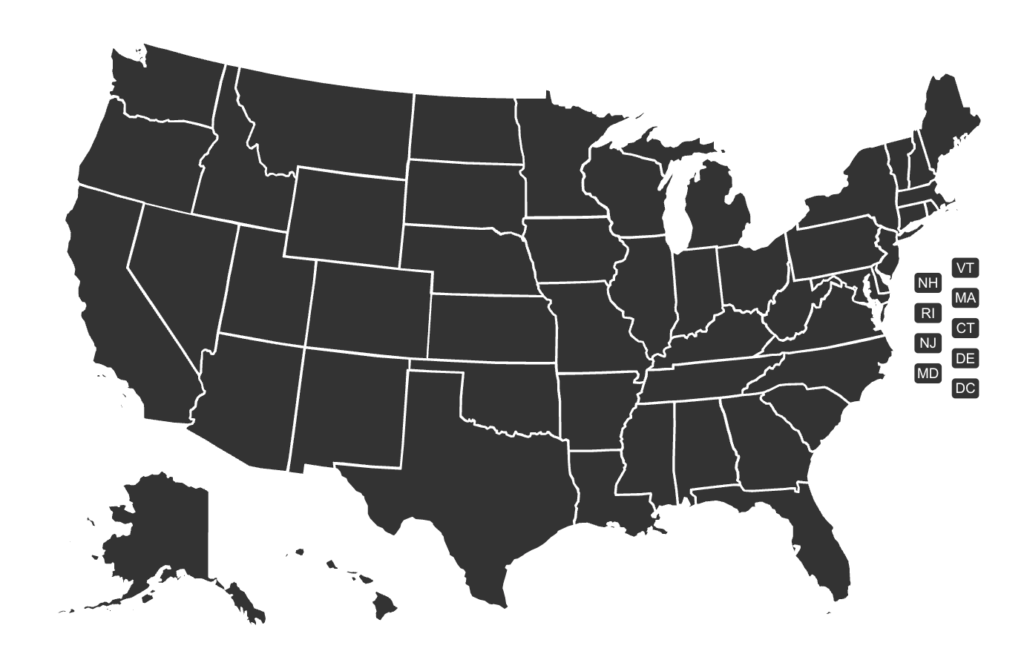Complete Guide to the Women’s Health Nurse Practitioner (WHNP) Specialty
Definition: What Is a Women’s Health Nurse Practitioner (WHNP)?
As a registered nurse who has attained advanced training and education, a Women’s Health Nurse Practitioner (WHNP) provides women with comprehensive care throughout their lifespan. While most women’s health nurse practitioners focus on diagnosing, caring for, and treating obstetric, reproductive, and gynecological health issues, preventative health measures are also practiced.
Most WHNPs work in a primary-care setting, community health centers, women’s health clinics, hospitals, or student health centers. Each state mandates if a women’s health nurse practitioner needs to have a physician’s oversight, so these requirements can vary widely.
Women’s Health Nurse Practitioner Scope of Practice
Depending on the work setting, a women’s health nurse practitioner could perform the following duties:
- Diagnose, treat and educate women about sexually transmitted diseases
- Counsel and educate patients regarding pregnancies that are unplanned
- Work beside physicians like OBGYNs as they perform surgery
- Educate and counsel women about peri-menopause and menopause
- Counsel and educate patients about sexual health and intimacy
- Diagnose female-related diseases such as ovarian cysts, urogynecological disorders, hormone changes, female infertility and cancers of the ovaries, cervix and/or breasts
- Perform well-woman checkups and exams
- Counsel and educate women on the available contraception methods
- Address concerns about infertility
- Prescribe medication including contraception
- Insert contraception such as implanted or intrauterine devices
- Manage the woman’s health throughout the perinatal period
- Screen for high-risk behaviors, as well as domestic violence and substance abuse
Skills & Abilities
In addition to the technical job skills that every women’s health nurse practitioner must learn and implement during their careers, there are other skills and competencies that are required in order to be successful in this career. These include:
- Excellent interpersonal skills
- Able to communicate effectively with a wide swath of the population
- Critical thinking skills
- Compassion for women, their families, and other loved ones
- Problem-solving abilities
- Leadership skills if you are managing a healthcare team
Women’s Health Nurse Practitioner Certification & Subspecialties
Certification is crucial upon graduating from an online WHNP program. Most certifications are available via examination. A few certification options are available, depending on the WHNP’s expertise and professional goals:
| Women’s Health Care Nurse Practitioner – NCC Certification | RNC – OB – Inpatient Obstetric Nursing | |
|---|---|---|
| Organization | National Certification Corporation | National Certification Corporation |
| Cost | $325 | $325 |
| Number of Questions | 175 | 175 |
| Eligibility Requirements | Current nursing license, completion of an accredited graduate nursing program, must complete exam within 8 years of graduation from graduate nursing program | Current nursing license, 2000 hours of specialty experience over 24 months, employment within specialty area over the past 24 months |
For registered nurses who are passionate about helping women, obtaining a WHNP degree provides you with entrance into a growing field. You can also, however, choose a subspecialty area and take elective courses to gain entrance into more niche practices. Earning an optional specialty certification and/or meeting clinical goals is often required in order to do so.
Some common women’s health nurse practitioner subspecialties include:
- Perinatal
- Postpartum
- Palliative care
- Sexual health
- Gerontology
Becoming a Women’s Health Nurse Practitioner
Becoming a nurse practitioner in any specialty starts with deciding on a degree pathway that meets the student’s professional goals. From there, enrolling in an online WHNP program is the next step. The length of time it takes to complete the program will depend on the degree level chosen, as well as if the student opts for full-time or part-time enrollment. Degree options include:
Once the degree is completed, the nurse will need to become properly licensed and certified as a WHNP in his/her state. The level of practice authority that a women’s health nurse practitioner will receive upon employment depends on the state’s regulations – some states allow full practice authority where WHNPs can essentially work autonomously, while others require differing levels of physician supervision.
Registered nurses looking for experience in the women’s health area of care before they enroll in a proper NP program may find the following areas suitable:
- Obstetrics & gynecology
- Labor & delivery
- Women’s clinics
- Birthing centers
- Reproductive health centers

- Alabama
- Alaska
- Arizona
- Arkansas
- California
- Colorado
- Connecticut
- Delaware
- Washington, DC
- Florida
- Georgia
- Hawaii
- Idaho
- Illinois
- Indiana
- Iowa
- Kansas
- Kentucky
- Louisiana
- Maine
- Maryland
- Massachusetts
- Michigan
- Minnesota
- Mississippi
- Missouri
- Montana
- Nebraska
- Nevada
- New Hampshire
- New Jersey
- New Mexico
- New York
- North Carolina
- North Dakota
- Ohio
- Oklahoma
- Oregon
- Pennsylvania
- Rhode Island
- South Carolina
- South Dakota
- Tennessee
- Texas
- Utah
- Vermont
- Virginia
- Washington
- West Virginia
- Wisconsin
- Wyoming
Women’s Health Nurse Practitioner Employment Opportunities
According to the Bureau of Labor Statistics (BLS) website, a nurse practitioner can look forward to the industry experiencing a growth rate of 26 percent between 2018 and 2028 which is much faster than average. As of 2018, there were 240,700 jobs for nurse anesthetists, nurse practitioners, and nurse midwives across the United States.
The BLS website indicates that the following settings are the largest employers of these nurse practitioner specialists:
- Physicians’ offices
- Hospitals
- Outpatient care centers
- Educational services
- Other health practitioners’ offices
Women’s Health Nurse Practitioner Salaries
The median pay for those working as nurse practitioners was $109,820 per year in 2019 or about $55.67 per hour. In general, hospitals and outpatient care centers paid the highest wages. In descending order of rate of compensation are physicians’ offices, the offices of other healthcare providers, and educational services organizations.
There are a number of factors that can affect the actual WHNP salary one can earn besides their work settings. These include:
- Level of education
- Geographical location
- Experience level
- Credentials/certifications held
- Employing organization

